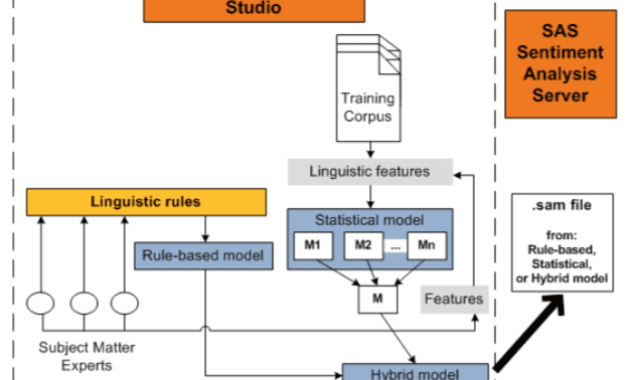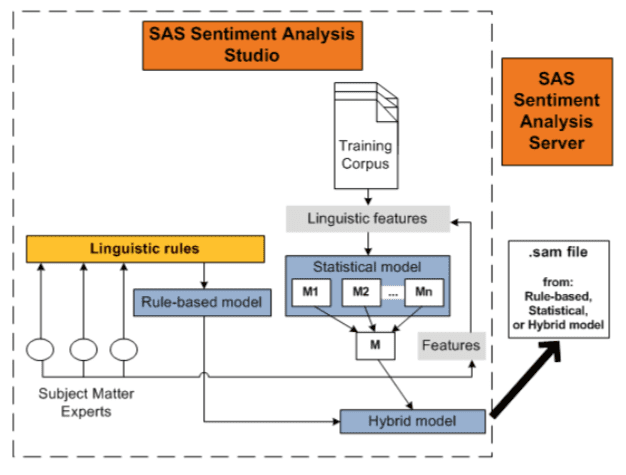
Unveiling the Power: How Sentiment Business Intelligence Software Applications are Reshaping the Business Landscape
In an era where data reigns supreme, businesses are constantly seeking innovative ways to understand their customers, optimize operations, and gain a competitive edge. One of the most powerful tools emerging in this quest is Sentiment Business Intelligence (BI) software applications. This technology goes beyond traditional data analysis, delving into the emotional undertones of customer feedback, market trends, and brand perception. This article explores the transformative impact of Sentiment Business Intelligence software applications on various industries and how they are reshaping the business landscape.
Understanding Sentiment Business Intelligence
At its core, Sentiment Business Intelligence software applications leverage Natural Language Processing (NLP) and machine learning algorithms to analyze text and voice data. This analysis identifies the sentiment expressed – positive, negative, or neutral – associated with specific topics, products, or brands. This goes beyond simply counting mentions; it uncovers the underlying emotions driving customer behavior. By integrating sentiment analysis with other business data, organizations gain a holistic view of their performance and the factors influencing it.
Key Features and Functionality of Sentiment BI Software
Sentiment Business Intelligence software applications offer a range of features, including:
- Sentiment Analysis: Automatically assesses the emotional tone of text and voice data from various sources.
- Topic Extraction: Identifies key themes and topics discussed in the data, allowing businesses to focus on relevant issues.
- Data Source Integration: Connects with diverse data sources, such as social media platforms, customer reviews, surveys, and internal CRM systems.
- Real-time Monitoring: Provides up-to-the-minute insights into customer sentiment and market trends.
- Reporting and Visualization: Generates customizable dashboards and reports to present sentiment data in an easily understandable format.
- Predictive Analytics: Uses historical sentiment data to forecast future trends and customer behavior.
Industries Benefiting from Sentiment BI
The applications of Sentiment Business Intelligence software applications are vast, impacting various industries:
Retail and E-commerce
Retailers and e-commerce businesses use sentiment analysis to monitor customer reviews, track brand reputation, and identify product issues. This allows them to make data-driven decisions to improve customer satisfaction, optimize product offerings, and personalize marketing campaigns.
Financial Services
Financial institutions use sentiment analysis to assess customer satisfaction, detect fraudulent activities, and monitor market sentiment related to specific stocks or investment products. This helps them mitigate risks and make informed investment decisions.
Healthcare
Healthcare providers utilize sentiment analysis to understand patient feedback, improve patient experience, and identify areas for improvement in care delivery. This can help improve patient outcomes.
Hospitality
Hotels and restaurants use sentiment analysis to monitor online reviews, understand guest feedback, and improve service quality. This helps them enhance customer loyalty and drive revenue growth.
Marketing and Advertising
Marketing and advertising teams use sentiment analysis to gauge campaign effectiveness, understand audience preferences, and tailor their messaging for better results. This helps drive more engagement.
Benefits of Implementing Sentiment BI Software
Implementing Sentiment Business Intelligence software applications offers several advantages:
- Improved Customer Understanding: Gain deeper insights into customer needs, preferences, and pain points.
- Enhanced Brand Reputation: Proactively manage brand perception and address negative feedback.
- Increased Customer Loyalty: Enhance customer experience and build stronger relationships.
- Optimized Product Development: Identify product issues and develop solutions based on customer feedback.
- Data-Driven Decision Making: Make informed decisions based on real-time sentiment data.
- Competitive Advantage: Stay ahead of the competition by understanding market trends and customer behavior.
- Improved Operational Efficiency: Identify and address operational inefficiencies.
Choosing the Right Sentiment BI Software
Selecting the right Sentiment Business Intelligence software application is crucial for maximizing its benefits. Consider the following factors:
- Data Sources: Ensure the software integrates with your relevant data sources.
- Accuracy: Choose a solution with high sentiment analysis accuracy.
- Features: Evaluate the features offered, such as topic extraction, real-time monitoring, and reporting capabilities.
- Scalability: Consider the software’s ability to handle large volumes of data as your business grows.
- Ease of Use: Opt for a user-friendly interface that allows for easy data analysis.
- Cost: Choose a solution that fits your budget and offers a good return on investment.
The Future of Sentiment Business Intelligence
The future of Sentiment Business Intelligence software applications is bright. As technology continues to advance, we can expect to see:
- More sophisticated NLP algorithms: Leading to even more accurate sentiment analysis.
- Integration with AI: Enabling more advanced predictive analytics and automated insights.
- Increased adoption across industries: As businesses recognize the value of understanding customer sentiment.
- Focus on Voice Analysis: Understanding the sentiment in voice data will grow.
Sentiment Business Intelligence software applications are poised to become an indispensable tool for businesses seeking to thrive in the data-driven era. By harnessing the power of sentiment analysis, organizations can gain a deeper understanding of their customers, optimize their operations, and ultimately achieve greater success. The ability to understand and respond to customer emotions is no longer a luxury; it is a necessity.
As businesses increasingly recognize the importance of understanding customer sentiment, the adoption of Sentiment Business Intelligence software applications will continue to rise. These tools provide valuable insights that can drive strategic decision-making, improve customer experiences, and boost overall business performance. By embracing this technology, organizations can position themselves for long-term success in an increasingly competitive marketplace. The ability to quickly adapt and respond to changes is key.
Sentiment Business Intelligence software applications are revolutionizing the way businesses operate. They are providing valuable insights into customer behavior and market trends. This is helping companies make better decisions and improve their bottom lines. With the continuous improvements in NLP and machine learning, the capabilities of these applications will only increase. Businesses that adopt this technology will gain a significant competitive advantage in the years to come. The ability to understand sentiment is the key.
The implementation of Sentiment Business Intelligence software applications is not just a technological upgrade; it is a strategic shift. It requires a commitment to understanding the emotional drivers behind customer behavior. This includes a willingness to adapt to the insights generated. It is also about making data-driven decisions. This shift will help organizations build stronger customer relationships and boost their overall performance. The right software can make a big difference.
In conclusion, Sentiment Business Intelligence software applications offer a powerful way for businesses to understand their customers. They provide insights into market trends. They help companies make better decisions. They can improve overall business performance. By embracing this technology, organizations can achieve a significant competitive advantage. The future of business is in understanding sentiment. The right software is key for success.
[See also: The Rise of AI in Business Intelligence, How to Choose the Right BI Tool, Data Visualization Best Practices]

